KOPPERS VIDALIA'S
Exceptional Storm Response Powers Southeast Recovery
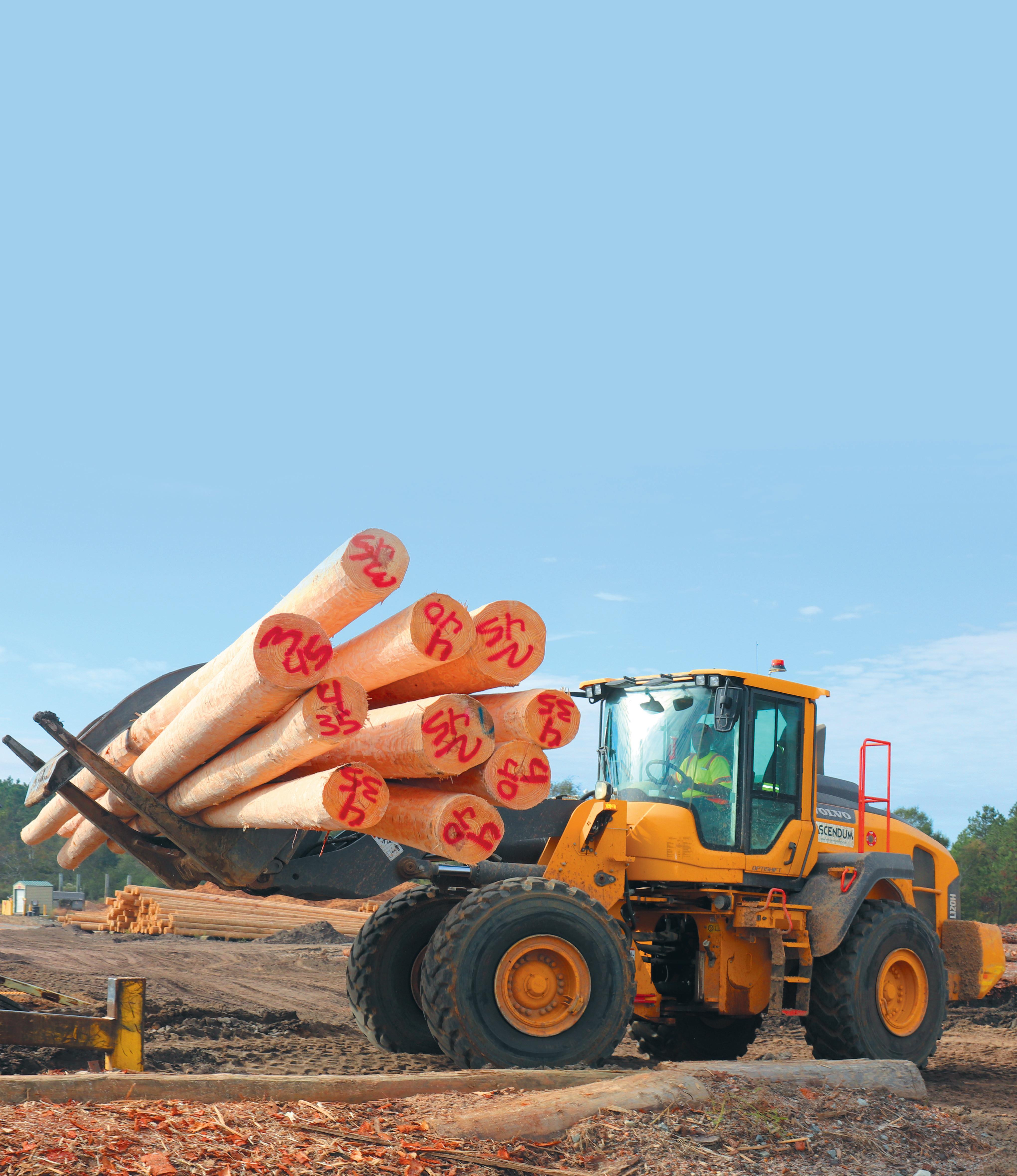

TRAVELING BY RAIL - Crane Operator Curtis Riner loads rail cars onto Koppers Rail Spur to travel across the Southeast to utility companies.
As Hurricanes Helene and Milton pounded the southeastern United States, they brought not only devastating winds and rains but also unprecedented challenges. Amid the chaos, one beacon of resilience emerged in the form of the Koppers Utility and Industrial Products plant in Vidalia, Georgia. Their extraordinary efforts during the crisis underscored the plant’s indispensable role in restoring power and stability across the region.
The two hurricanes wreaked havoc, affecting millions and causing extensive damage. In Vidalia, the Koppers plant found itself at the center of the recovery efforts, supplying utility poles crucial for restoring electricity. With multiple Koppers customers spread across Georgia and Florida relying on them, the stakes were high.
Brad Singleton, Plant Manager at the Koppers Vida-


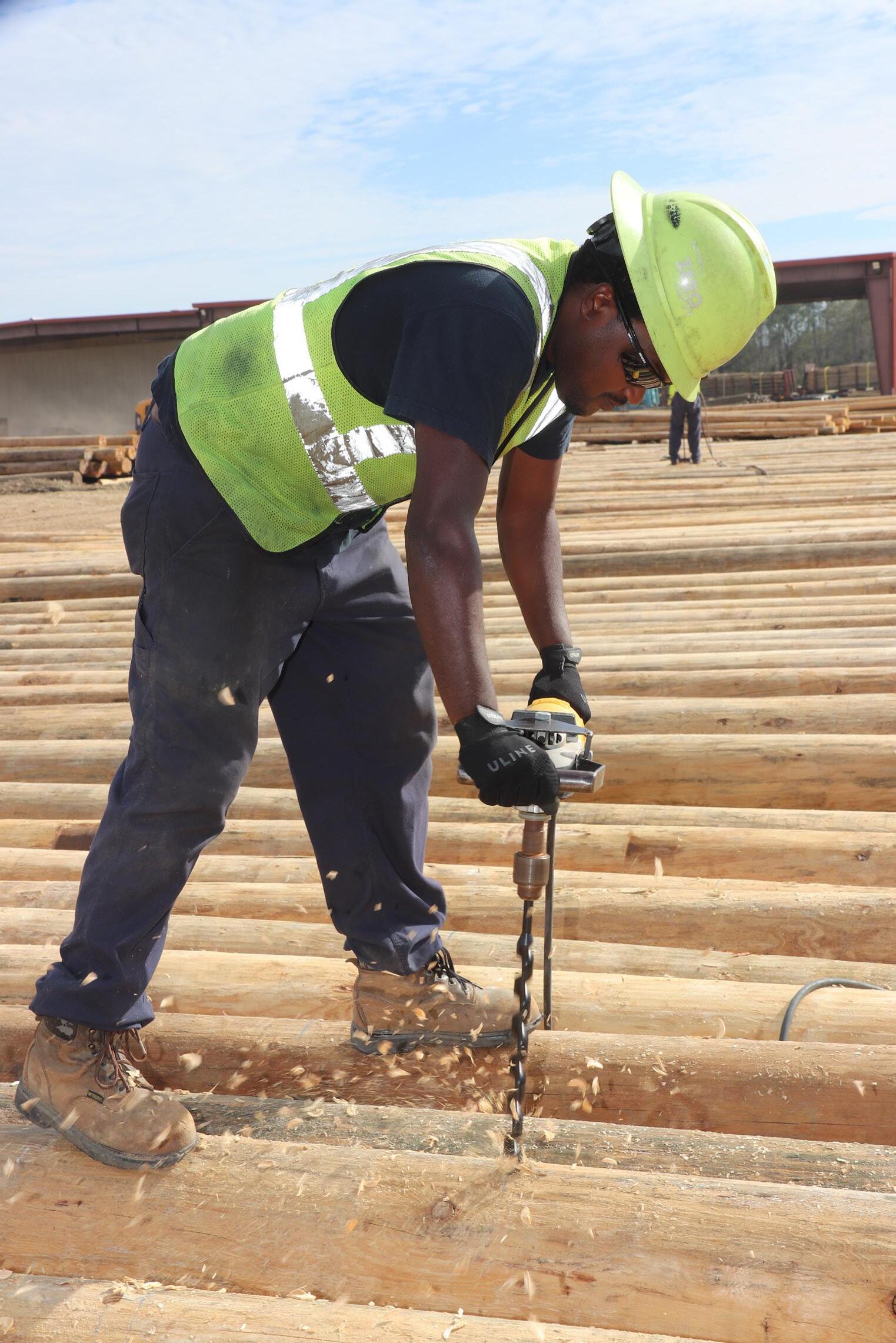
PREPARING FOR CONNECTIONAntonio Hillary works to frame the poles, drilling holes for the cross arms that vary for each utility company.
lia plant, described the initial challenges. “This was a tremendous challenge for us.” Singleton said. “We had several employees that had damage to their own homes. And it took us several hours to cut and move trees out of the roads to the plant just to get in when the storm passed.”
Despite these personal and operational challenges, the plant’s response was swift and
DIFFERENT CLASSES - Derrick Brantley works to class the poles marking what size pole it is, based on diameter and height. This pole is a Class 2 45 pole.


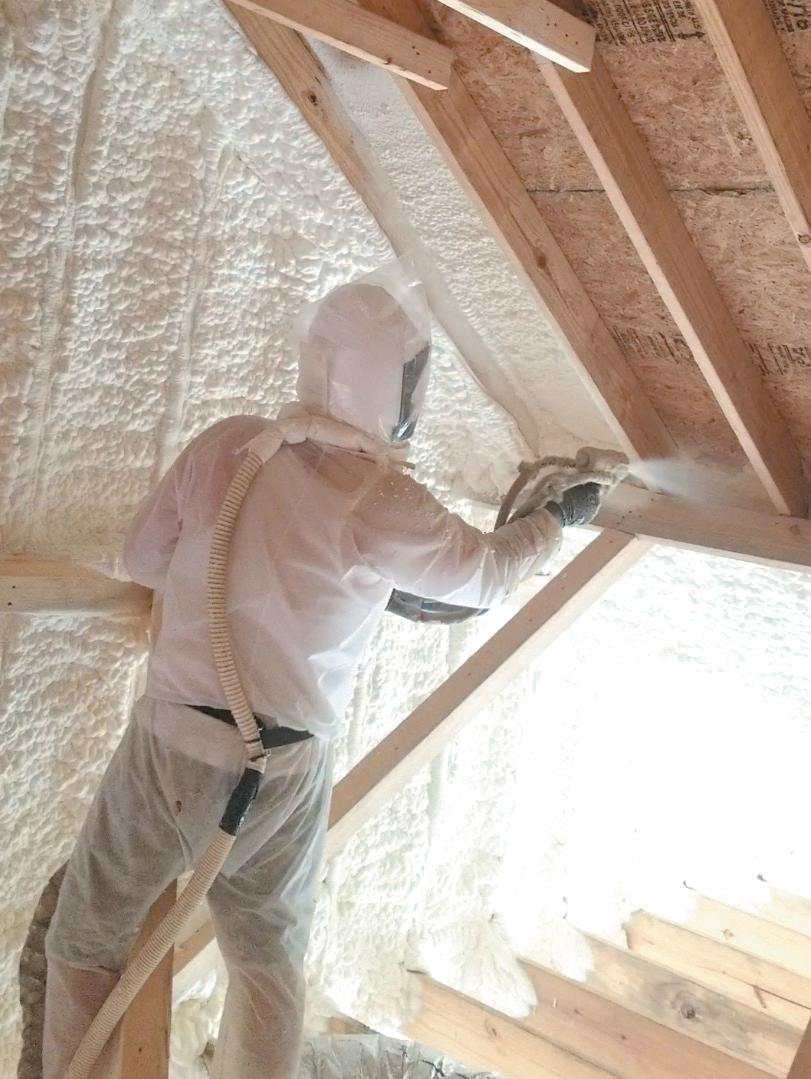





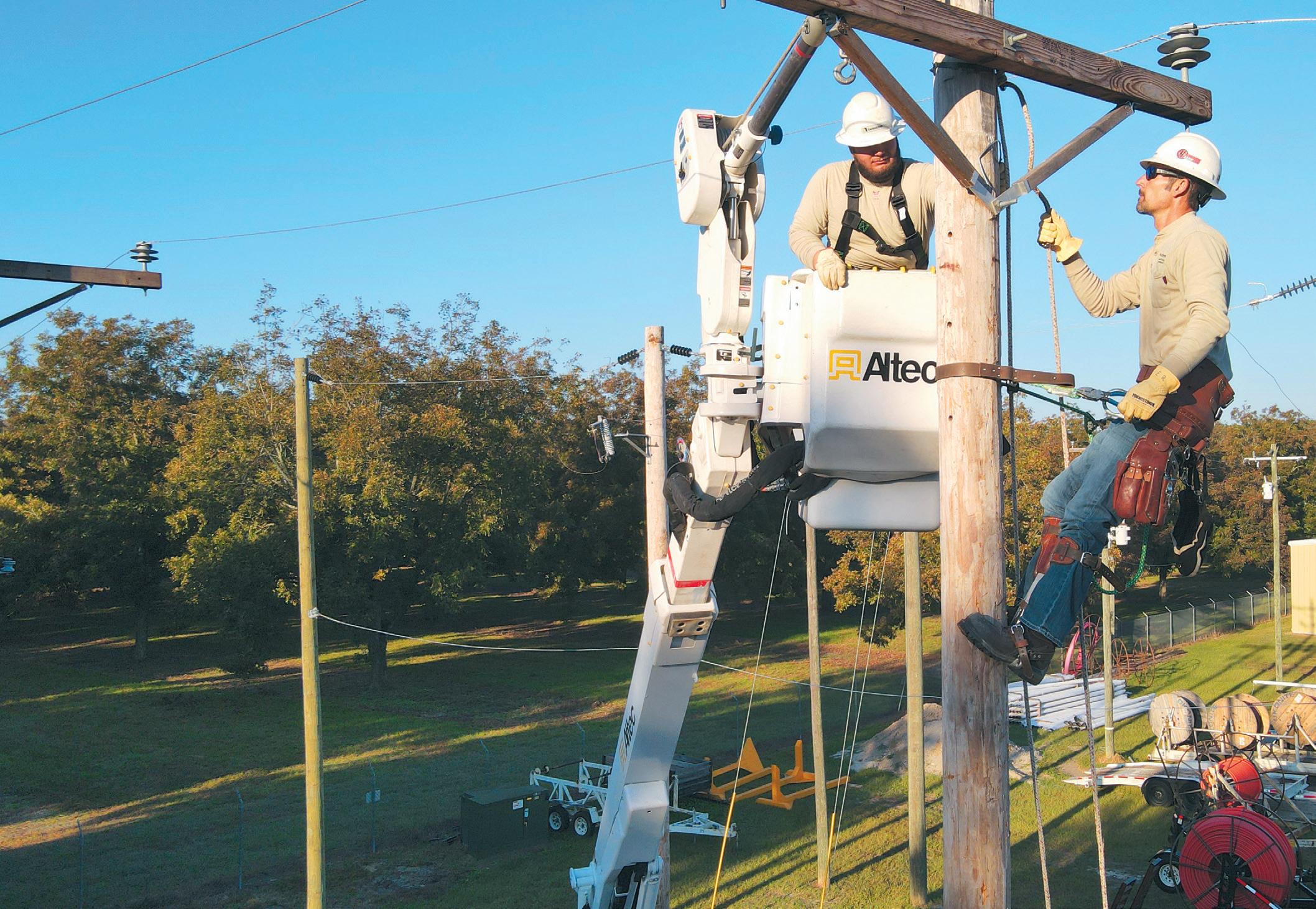





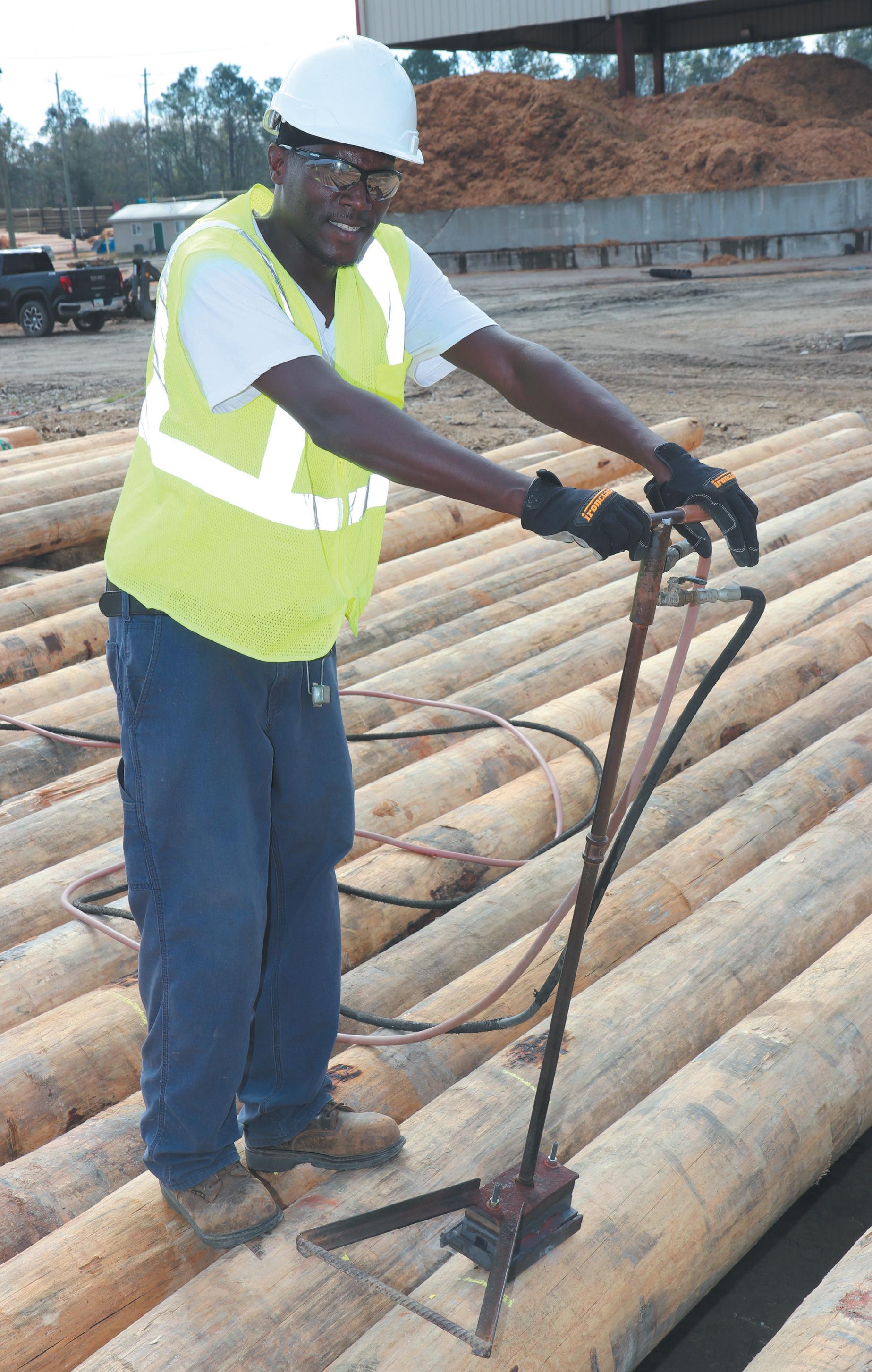

determined. Over 55 employees, many dealing with their own stormrelated damage, came together to ensure that the plant remained operational. The Koppers team demonstrated remarkable dedication, running over 60 trucks a day for the first five days and shipping over 10,000 utility poles within that time frame.

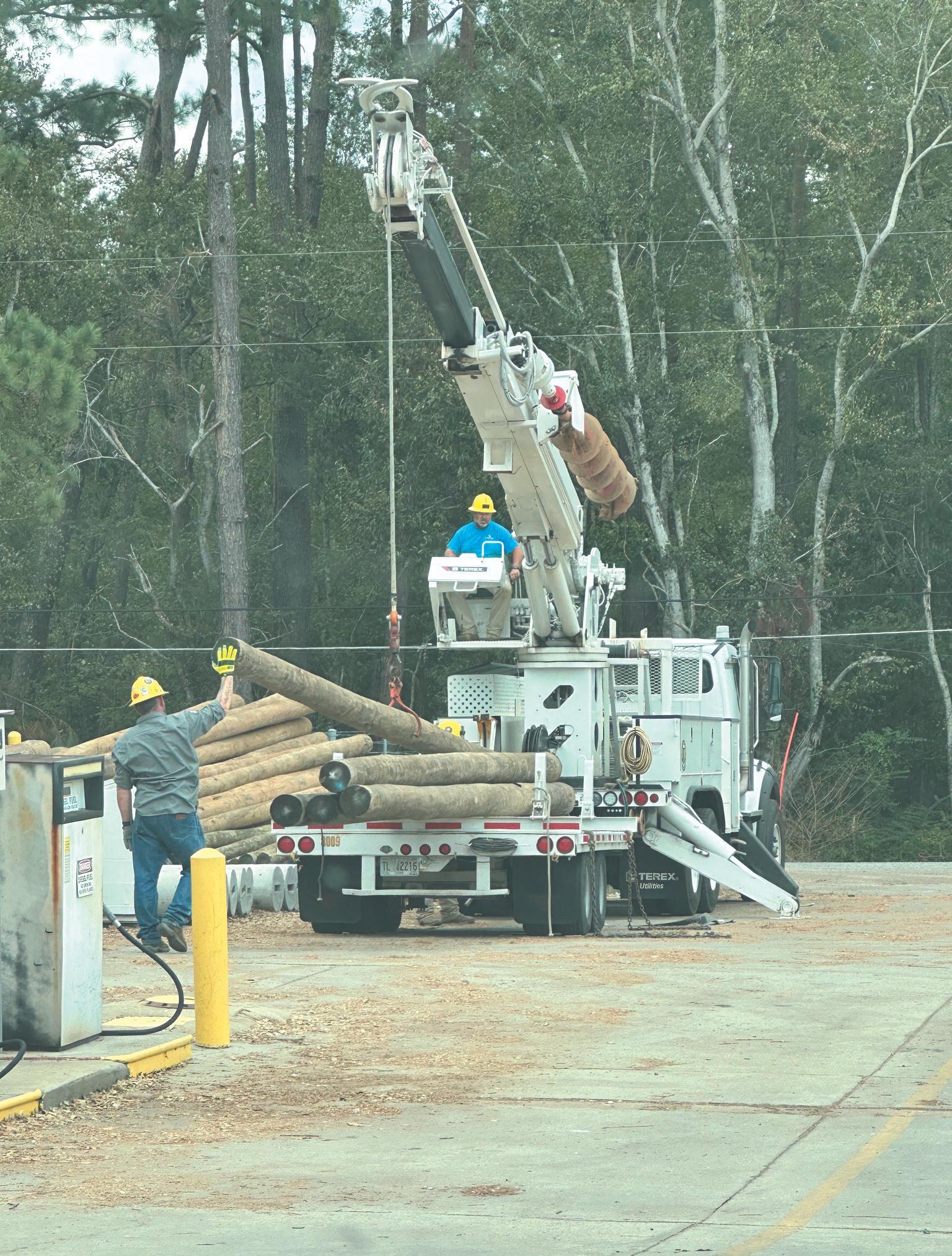
Assistant Plant Manager, Jason Varn, who has been with Koppers for over 8 years, epitomized this spirit of resilience. “It was tough seeing our employees’ homes and community affected but knowing that our work was helping restore power gives us a sense of purpose,” Varn shared. “We were committed to supporting our customers and community through this crisis.”
The logistical coordination during this period was formidable. The hardest-hit areas, stretching from Florida and Valdosta to Augusta and Savannah in Georgia, received much-needed utility poles from the Vidalia plant. The plant’s efficient operations and quick turnaround times were crucial in restoring power to hundreds of thousands of residents.
Georgia Power, Colquitt EMC, Altamaha EMC, Jefferson Energy, Satilla Rural EMC, Canoochee EMC, Excelsior EMC, and Irwin EMC were among a few utility companies that benefited from Koppers’ relentless efforts. The



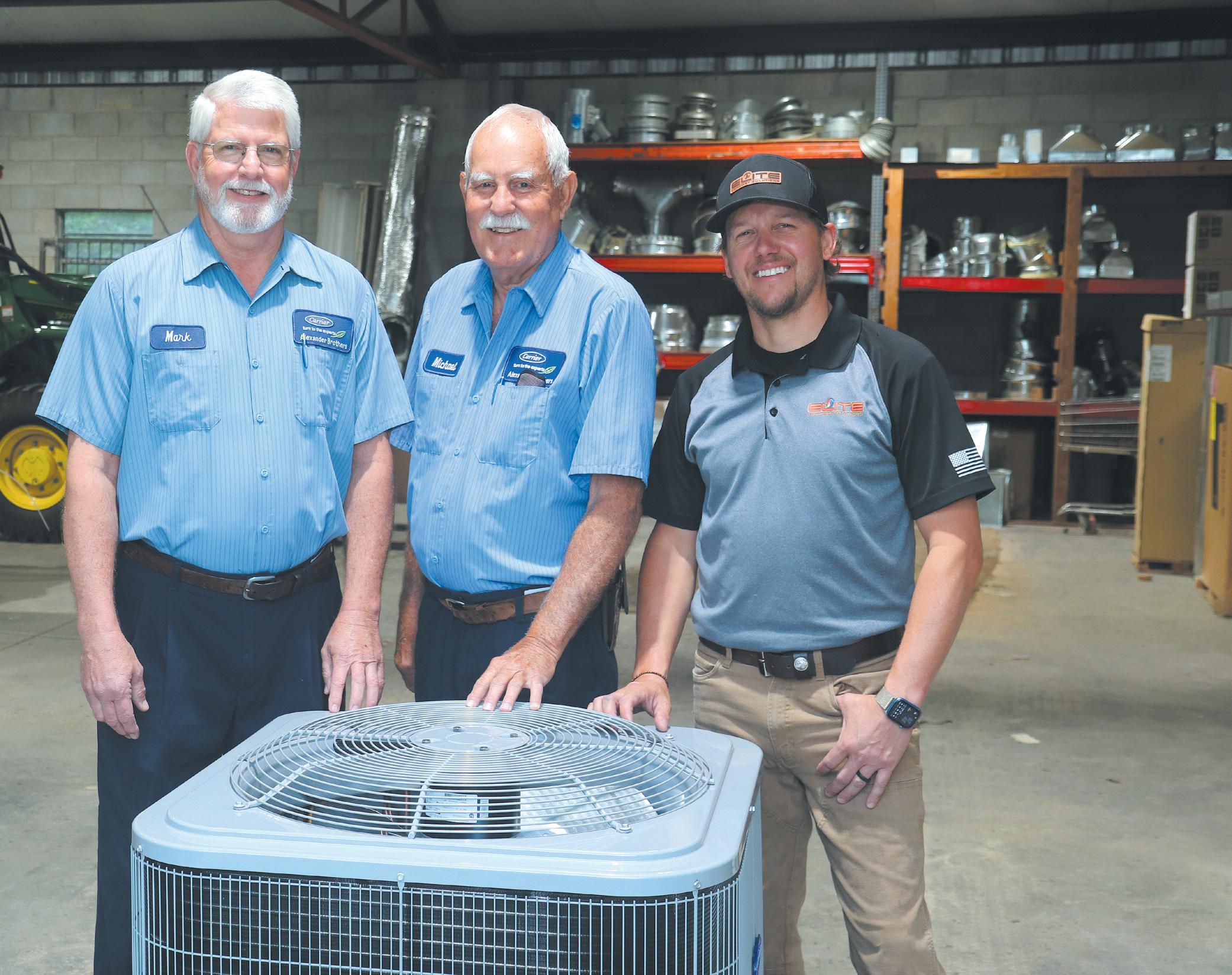










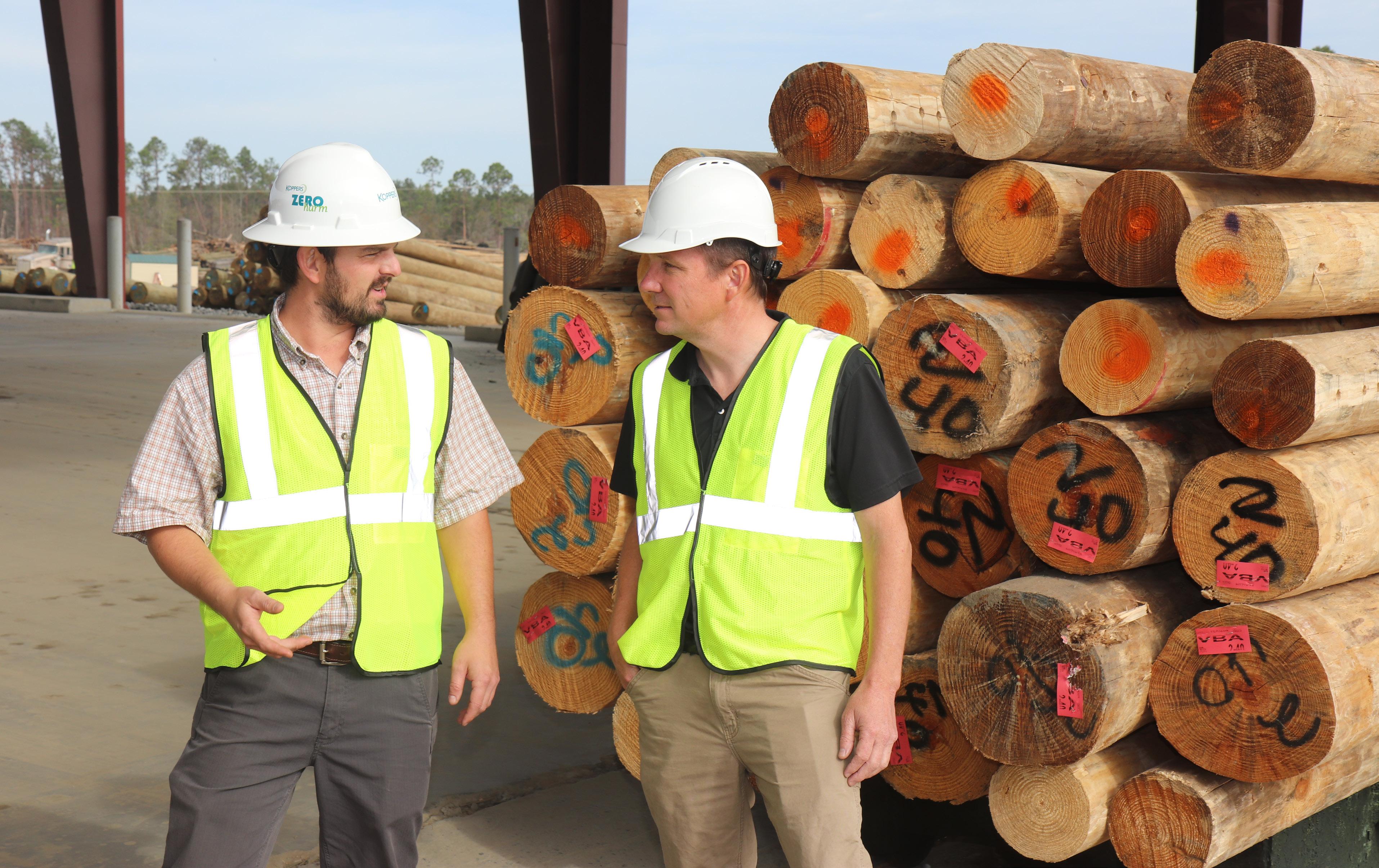
butions. “Koppers' swift and efficient response was instrumental in our restoration efforts,” said Bryan Mosley, Purchasing and Warehouse Manager for Altamaha EMC. “Their dedication to service during such a challenging time exemplifies what they are all about.”
As the region continues to recover, the Koppers Vidalia plant remains committed to supporting ongoing efforts. The experiences from Hurricanes Helene and Milton have strengthened the plant’s resolve and preparedness for future challenges. Investments in infrastructure, training, and emergency response protocols have been enhanced, ensuring even greater resilience in the face of potential future crises.
Looking forward, Koppers remains dedicated to its mission of supporting utility companies and communities. Their response to the recent hurricanes has reinforced the importance of preparedness, collaboration, and unwavering dedication to service.
The story of Koppers Utility and Industrial Products plant in Vidalia, Georgia, during
Hurricanes Helene and Milton is a powerful narrative of overcoming adversity. It highlights the strength and determination of a community united by a common purpose and the profound impact of committed individuals in times of crisis.
As Vidalia and the surrounding areas rebuild and recover, the Koppers plant stands as a testament to what can be achieved through resilience, teamwork, and an unwavering commitment to serving the community.
Within days, the Vidalia plant ramped up production, shipping over 20,000 utility poles within Georgia alone. These poles, essential for restoring electricity, were dispatched to Koppers’ customers across the affected states, including Georgia, Florida, Alabama, and the Carolinas. Each shipment was a testament to the plant’s unwavering commitment to service.
The logistical coordination was a formidable task. The plant collaborated closely with local authorities, utility companies, and transportation services to ensure timely deliveries. Roads ravaged by the storm posed significant challenges, but strategic planning and relentless efforts enabled successful execution.
plant’s ability to deliver poles within 24 hours of receiving orders was a game-changer in the restoration process.
“This was the largest storm response in Koppers history,” Singleton noted. “We were able to come together as a team and stay focused on helping all our customers get their power restored as quickly as possible. And one thing that we are proud of is all our customers were receiving deliveries within 24 hours of us receiving the order for poles.”
Within hours after the storm passed through, the Vidalia plant ramped up production, shipping over 20,000 utility poles within Georgia alone. The logistical coordination was a formidable task. The plant collaborated closely with local authorities, utility companies, and transpor-
tation services to ensure timely deliveries. Roads ravaged by the storm posed significant challenges, but strategic planning and relentless efforts enabled successful execution.
Truck drivers like Ellis Griffin, who has been with Koppers for over a decade, played a vital role in these efforts. “Driving through stormravaged areas was challenging,” Griffin recounted. “But knowing that each delivery brought communities one step closer to normalcy kept us going. The gratitude we received from utility crews and residents made it all worthwhile.”
The plant’s exemplary response did not go unnoticed. Local officials and utility companies praised Koppers for their invaluable contri-

